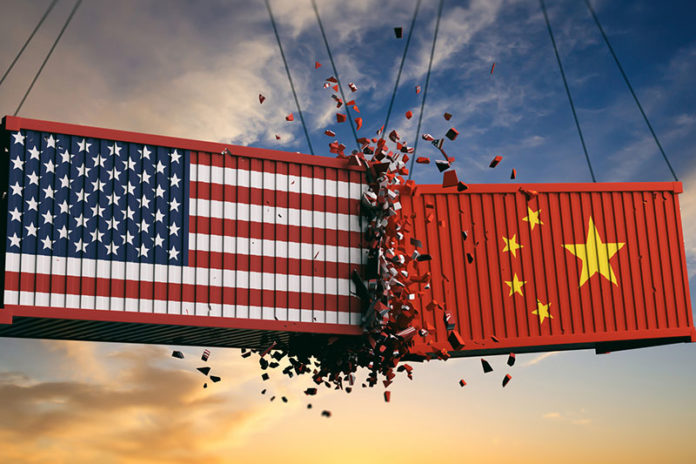In the 1973 film, “The Sting,” the character played by Robert Redford sizes up an enemy and says, “He’s not as tough as he thinks.” Replies his friend, played by Paul Newman: “Neither are we.”
Someone should have provided similar advice to Donald Trump before he decided to wage a trade war with China. It’s dangerous to underestimate your adversary and overestimate yourself, and he’s done both.
The president boasted early that “trade wars are good, and easy to win.” He used a combination of threats, tariffs and personal interaction with Chinese leader Xi Jinping in a campaign to extract concessions. But things have not gone according to plan.
In December, Trump had dinner with Xi at the G-20 summit in Buenos Aires and called it “an amazing and productive meeting with unlimited possibilities for both the United States and China.” In January, he once again exuded optimism, asserting, “We never really had a trade deal with China and now we’re going to have a great trade deal with China, if it all works out.”
Trump looked forward to meeting with Xi in February to finalize a deal before new tariffs took effect. “I think we can do it by March 1,” he said. The meeting got postponed until April. Then it was put off again, with Trump still envisioning “an epic deal.”
Finally, he and Xi met in June in Japan, but not to sign an agreement. After “a great meeting,” Trump said he would hold back on imposing additional tariffs on Chinese goods while disclosing, “We’re going to give them lists of things that we’d like them to buy.”
Like many a wish list, it yielded nothing. This month, Trump admitted those purchases have not been made, and he said he would put new tariffs on $300 billion in Chinese goods. Beijing countered by letting its currency depreciate and announcing a cutoff of U.S. agricultural imports.
Soybean shipments, which fell by half last year thanks in part to a tariff levied by China in retaliation for Trump’s tariffs, may go to zero. The American Farm Bureau Federation called Beijing’s decision “a body blow to thousands of farmers and ranchers who are already struggling to get by.”
The U.S. Chamber of Commerce and the Business Roundtable both said the escalating conflict would be harmful.. David French, vice president of the National Retail Federation, decried “a flawed tariff strategy that is already slowing U.S. economic growth, creating uncertainty and discouraging investment.”
Trump’s pugnacity was supposed to force China to realize that there was a new sheriff in town, leaving it no choice but to submit. But Xi knows giving in would be bad politics at home and would invite more demands. Mexico signed a new free trade deal only to find itself threatened with tariffs unless it reduced migration to the U.S.
Does China regard Trump as a bully? In that case, it’s likely to push back on the assumption that it would gain nothing by appeasing him. Or does it think he’s an inept blowhard who can be outwitted? In that case, it stands to gain by digging in and conceding nothing.
We don’t know what the Chinese leadership is thinking. What we do know is that Trump has failed to get what he wanted and what he promised. All he has done is inflict harm on both Americans and Chinese, with every prospect that worse is on the way.
The consequences of this escalation could be serious. In The Wall Street Journal’s latest monthly survey of more than 60 economists, they put the danger of a recession higher than anytime in the past five years. Even if the economy doesn’t take a dive, we can forget the boom in growth that Trump promised.
Trump may take consolation that the impasse will also take a bite out of China’s economic growth. But the consequences he has managed to inflict have been insufficient to get Beijing to comply with his demands. And getting into a war of attrition with a dictatorship is like trying to drown Diana Nyad.
At some point, with the 2020 election looming, Trump may have to retreat and hope he can limit the economic damage, but by then it may be too late. As alt-country singer John Moreland reminds us, “There’s a loser in every fight.” Sometimes more than one.
































